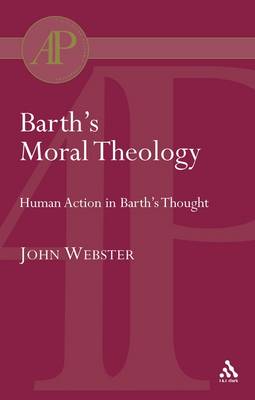John Webster shows how Barth's work as a whole should be regarded as a moral theology. He opens with a study of Barth's ethical thinking in key writings from the period of his break with theological liberalism, and then highlights the moral anthropology set out in his lectures on ethics from the end of the 1920s. He studies the themes of original sin, hope and freedom in Barth's Church Dogmatics, illustrating Barth's concern to prove that divine grace shapes and restores human agency. He explores the theme of the missionary activity of the church in relation to Barth's remarkable treatment of the prophetic office of Christ. He also draws a contrast between the moral anthropology of Barth and Luther. Praise for BARTH'S MORAL THEOLOGY 'An excellent volume of essays [which has] succeeded in showing that Barth is neither 'indifferent' nor 'hostile' to human moral action, but is profoundly concerned to understand it in its inextricable relation to divine action.' --Roland Chia, Epworth Review '. . . a well-researched and closely-rounded study of Barth's theology of human action. The author concludes the book with two outstanding chapters: first, a profound comparison of Luther and Barth on human agency, and second, the influence of Barth and Luther on one of today's leading theologians, Eberhard Jungel. To be commended without hesitation.' --John D. Godsey, Wesley Theological Seminary, Interpretation
- ISBN10 0567083861
- ISBN13 9780567083869
- Publish Date 9 July 2004
- Publish Status Out of Print
- Out of Print 20 January 2016
- Publish Country GB
- Publisher Bloomsbury Publishing PLC
- Imprint T.& T.Clark Ltd
- Format Paperback
- Pages 240
- Language English
